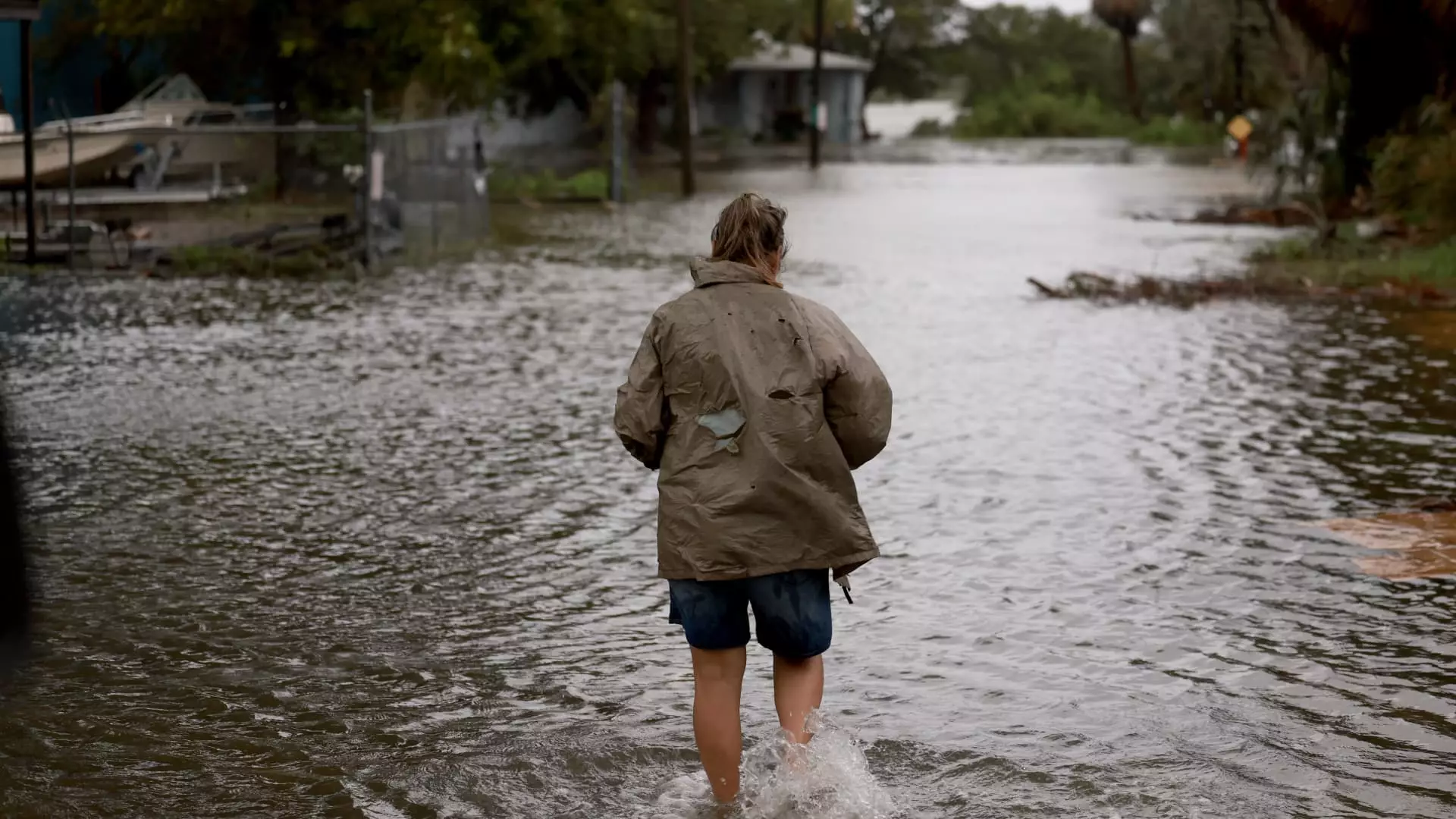As Hurricane Debby wreaked havoc in the southeastern U.S., residents faced the grim reality of flooding and property damage. While many homeowners may have flood insurance, there are limitations to what is covered by these policies, particularly when it comes to personal property stored in basements. Flood insurance generally does not cover damage to personal items such as couches, computers, televisions, or basement improvements like flooring and bathroom fixtures. This means that despite having flood insurance, policyholders may be left frustrated when their valuable belongings are ruined by floodwaters.
The Complexities of Basement Coverage
One of the major issues with flood insurance is the definition of a basement, which can vary depending on the insurance contract. Some policies may classify sunken living rooms or partially below-ground areas as basements, leaving homeowners vulnerable to gaps in coverage. This becomes especially crucial as climate change intensifies storms and floods, leading to more significant damages. The Federal Emergency Management Agency (FEMA) estimates that flooding is responsible for 90% of annual disaster damage in the U.S., highlighting the importance of understanding what is covered by insurance policies.
For individuals who store valuable items in basements, purchasing additional “contents coverage” may be necessary to ensure their possessions are protected in the event of a flood. Items such as clothes washers, dryers, air conditioners, and food freezers can be covered under an NFIP policy with additional contents coverage, but only if they are connected to a power source. Private insurers may offer broader coverage options for basement property, depending on the provider. It is crucial for homeowners to evaluate their insurance needs and consider the value of the items stored in their basements when selecting a policy.
To mitigate the risk of flood damage, consumers are advised to remove valuable items from basements and store them in safer locations. Moving items to higher ground or storage units can help minimize losses in the event of a flood. FEMA recommends documenting the details of equipment in basements, such as furnaces, AC units, and appliances, in case of a claim. Being proactive and prepared can make a significant difference in recovering from flood-related damages.
As flood risks continue to pose challenges for homeowners, insurance providers are looking to enhance coverage options, especially for basement properties. FEMA’s proposal to update the NFIP program aims to address limitations in basement coverage under current policies. By focusing on the structure of buildings, policies can offer more comprehensive protection for essential systems and equipment in basements, such as air conditioners, furnaces, and electrical components. Policyholders should review their insurance policies periodically to ensure they have adequate coverage for potential flood damages.
While flood insurance plays a crucial role in protecting homeowners from financial losses due to flooding, understanding the limitations of coverage is essential. Personal property stored in basements may not be fully insured under standard policies, highlighting the need for additional contents coverage. By taking proactive measures to safeguard valuables and staying informed about policy terms, homeowners can better prepare for potential flood-related damages. As insurance providers continue to update their offerings, policyholders should review their coverage options to ensure they are adequately protected in the event of a flood.

